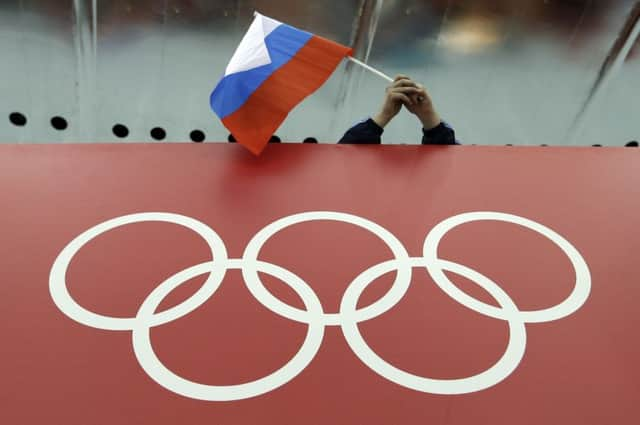Over 1,000 Russian athletes '˜involved in state sponsored doping'
This article contains affiliate links. We may earn a small commission on items purchased through this article, but that does not affect our editorial judgement.


The conspiracy involves dozens of medallists from the London 2012 Olympics, the 2013 World Athletics Championships in Moscow and the Sochi Winter Olympics in 2014.
Led by Canadian law professor Richard McLaren, the seven-month investigation is a damning indictment of an “institutionalised doping conspiracy and cover-up”.
Advertisement
Hide AdAdvertisement
Hide AdMcLaren’s final report, which has been published on the WADA website, includes more than 1,100 items of evidence. This evidence has also been published on a searchable database.
This treasure trove of emails, forensic reports and laboratory analysis entirely corroborates the key findings of his explosive interim report which was published in July, three weeks before the start of the Rio Olympics.
“The key findings of the first report remain unchanged. The forensic testing, which is based on immutable facts, is conclusive,” wrote McLaren in the executive summary of his final report.
“The evidence does not depend on verbal testimony to draw a conclusion. Rather, it tests the physical evidence and a conclusion is drawn from those results.”
McLaren said at a press conference that, as a result of its systematic doping, “the Russian Olympic team corrupted the London Games on an unprecedented scale, the extent of which will probably never be fully established”.
Russia won 24 gold, 26 silver and 32 bronze medals in London, while no Russian athlete failed a drugs test at the time of the Games.
McLaren added: “The desire to win medals superseded their collective moral and ethical compass and Olympic values of fair play.”
McLaren told reporters his final report provides more detail of just how large the doping conspiracy was, while supplying hard, physical evidence that cannot be contradicted.
Advertisement
Hide AdAdvertisement
Hide AdAnd in a clear message to those who criticised his interim report, most notably the International Olympic Committee, McLaren said he was dismayed by the “in-fighting” that marked the build-up to Rio Games and has simmered ever since.
“I find it difficult to understand why we’re not on the same team. We have shone a light on a dark secret,” he said.
Reading the report, it is difficult to disagree with him. The detail is staggering, even if it is still what McLaren described as “an incomplete picture” given the huge amount of evidence his team has not been able to access.
His team has found evidence that 78 Russian athletes at London 2012, including 15 medallists, had positive tests hidden by the Moscow laboratory. Five of these medallists have not been sanctioned yet.
It is a similar story for the World Athletics Championships in Moscow, where four athletes had their positive samples swapped for clean ones.
And at the 2014 Winter Olympics in Sochi, 12 medal-winning athletes are among those implicated.
